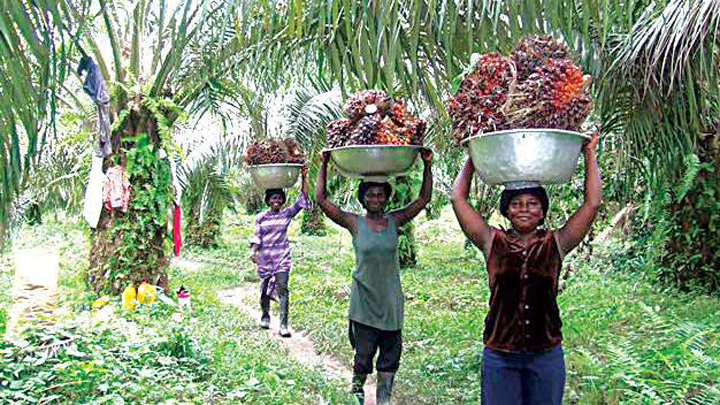
The recent invasion and looting of food items of warehouses belonging to the Federal Capital Territory Administration (FCTA) is a worrisome incident that cannot be pardoned for its illegality and greed; and yet cannot be overlooked for its underlying depiction of hunger and anger in the land.
Food items looted included those in transit for distribution in the wake of the harsh economic situation in the country. While looting is tantamount to criminal trespass, the situation, however, portrays the gory reality of pervasive poverty and the abysmal level of decadence in the society. Mass looting of warehouses including foodstuff in transit reflects the dehumanising condition to which the people have been subjected because of poorly initiated and implemented economic policies.
Prior to the worsening economic situation in the country, looting of foodstuffs was hitherto considered strange in the society. Looting should not find justification or rationalisation under whatever pretext considering the hazardous and dehumanising circumstances under which such notorious activities are carried.
The consequences of mass looting portend grave danger to the society and foretell the imminence of anarchy. Regrettably, the situation that has made mass looting an option in the country could be likened to the season of anomie where aggrieved citizens appear to be reacting angrily but disorderly to the hardship resulting from the failure of governance. While it should be asserted that the spate of looting in the country is borne out of frustration, it is, however, lamentable that the aberrant situation is becoming fashionable.
While looting could as well be the expression of mass anger over government’s poor handling of the economy, it would, however, be preposterous to ignore the fact most of the looted items in transit belong to private citizens carrying out legitimate business.
Even the looting of warehouses belonging to the government should be deemed inimical to the society considering that not all warehoused items are hoarded as often perceived. In most cases, looters end up denying the larger society of justice by either pushing legitimate business owners into crisis or depriving citizens who are in jeopardy during an emergency the opportunity to be reached out to when the need arises. When warehouses are looted under the guise that food items were hoarded, the unfortunate reality is that possibility for equitable distribution of the looted items has been denied as those who ought to be the target beneficiaries are shut out of prospects of fair treatment by those who deploy crude force and violence.
Majority of citizens already overstressed by the harsh economic situation are ultimately the victims as most of the looted food items are hawked at exorbitant prices or hoarded in private cupboards. It must be emphasised therefore that looting of government warehouses denies target beneficiaries of social welfare programmes and thereby worsens the hardship amongst the downtrodden.
More important, however, is the need for governments at national and subnational levels to be mindful of unwittingly encouraging criminality by subjecting people to unnecessary hardship through wrong-headed policies. Governments at all levels have failed to live up to expectations by ensuring fair distribution of the commonwealth and, by so doing, they instigate frustration and decadence in the society. The level of impoverishment in the society has become deep-seated with consequences of a ripple effect of chaos and instability by individuals who are ready to latch on to any situation to loot.
Looting becomes an option in a situation where people are hungry and frustrated amid outlandish displays of wealth by politicians. There is the need to ensure timely and proper distribution of food items to alleviate the sufferings of the people. The fact that people believe food items are hoarded by government officials attests to the depth of trust deficit in the society.
The government has lost the trust of the people because the social contract which places responsibility for ensuring the welfare of the elected has been broken. Governments at all levels should therefore prioritise confidence building to earn the trust of the people. The only antidote to looting is for the government to ensure justice and fair play when food items are warehoused for distribution. Government should put in place measures that will ensure transparency and accountability in the distribution of items designated as palliatives.
Government must face the fact that the situation in the country has degenerated to the level that hope is fast disappearing. The poor have lost hope and therefore see nothing wrong in looting warehouses in reaction to the widespread corruption and callous exhibition of commonwealth by politicians. Government has the responsibility to put an end to the excruciating economic situation that instigates looting which poses a serious threat to peace in the society. If the situation is allowed to degenerate further, citizens carrying out legitimate retail of food items would be exposed to risks and uncertainties as stock of food items will be the target of angry citizens eager to vent out their frustration by looting.
Ultimately, the government must appreciate that provision of palliatives should only be for the purposes of intervention during emergency. What the citizens deserve is productive engagements that will translate into living wage for household survival.
Distribution of food items as palliatives, except in emergency cases, should not be a permanent priority of the government in the bid to tackle poverty headlong. There must be a more robust strategy of getting citizens meaningfully engaged with the view to harness the productive energy to ensure decent living and to discourage looting and other forms of decadence in the society.













